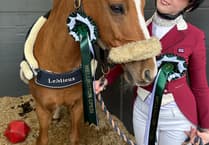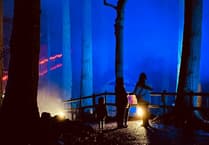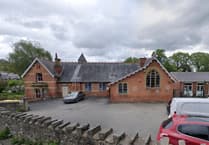Llanuwchllyn provides the location for a new television show about evacuees.
Presenters Sean Fletcher and Siân Lloyd will present four programmes, recalling the time when children had to leave their families, their homes, and their communities.
Thousands of children sent away for their safety during World War II found themselves moving from some of England’s largest cities to the countryside of Wales. Efaciwîs: Plant y Rhyfel (Evacuees: Children of the War) will recreate the experience of being sent to a different country where you didn’t even speak the same language, by bringing eight young people from Liverpool, Birmingham and London to the village of Llanuwchllyn.
The second programme, Efaciwîs, looks at the experience of evacuees in Wales and the history of Wales as a place that has offered a refuge to those who have been forced to leave their homes due to war.
The series starts on Sunday, 23 January with Efaciwîs: Pobol y Rhyfel (Evacuees: People of the War).
It wasn’t only children that moved to Wales. The government’s treasury department moved to the Imperial Hotel in Llandudno and the Ministry for Food to Colwyn Bay. The BBC’s entertainment department moved to a secret location in the Bangor area, and it was from there that some of the BBC’s most popular programmes were broadcast throughout the war.
The series closes with a documentary in the DRYCH series - DRYCH: Lloches (DRYCH: Refuge) on 20 February which looks at Wales’s role in the effort to offer a safe place for refugees.
Siân Lloyd said: “Before the beginning of World War II, the British Government knew that the Germans would bomb the big cities.
“They feared that half a million people could be killed by the Luftwaffe during the first months of the war. There was a plan in place to move the children, mothers and vulnerable people to safe places – places like Wales.”
In this programme, we hear from evacuees such as Jean Jones from London who stayed with a family at a farm in Ceredigion.
“I remember arriving in Carmarthen by train and then being taken in a car – I had never been in a car before. We arrived in Maesfelin, Rhydlewis that night. Unlike London, there was no electricity – it was really strange using oil lamps. But they made me feel very welcome.”
As most rural communities in Wales spoke only Welsh, the evacuees had to learn to speak Welsh.
Jean said: “Looking back, I must have picked Welsh up fairly quickly. Most of the time, I was happier speaking Welsh. Even now I sometimes remember a word in Welsh but not in English!”
We also hear how things were from for the Welsh-speaking people who lived in the areas where the evacuees were brought.
Sylvia Cracroft from Rhyd-y-foel, near Abergele, was a child at the beginning of the war and remembers the evacuees arriving.
“They all had cases, and some had labels with their names on. Then people went to choose the children. I always thought this was unfair,” said Sylvia.
“A lot of poor children came from Liverpool. I remember one boy – his name was Desmond – he hadn’t had clean clothes for days – maybe a week. It was a sad time for them, really, wasn’t it?”
Efaciwis: Pobol y Rhyfel is full of stories that are happy, sad but also very interesting as people from the time look back on an extraordinary time in the history of Wales and Britain.
The four-part series starts on Sunday, 23 January at 8pm on S4C.
English subtitles are available, and the show can be found on demand on S4C Clic, iPlayer and other platforms.





Comments
This article has no comments yet. Be the first to leave a comment.